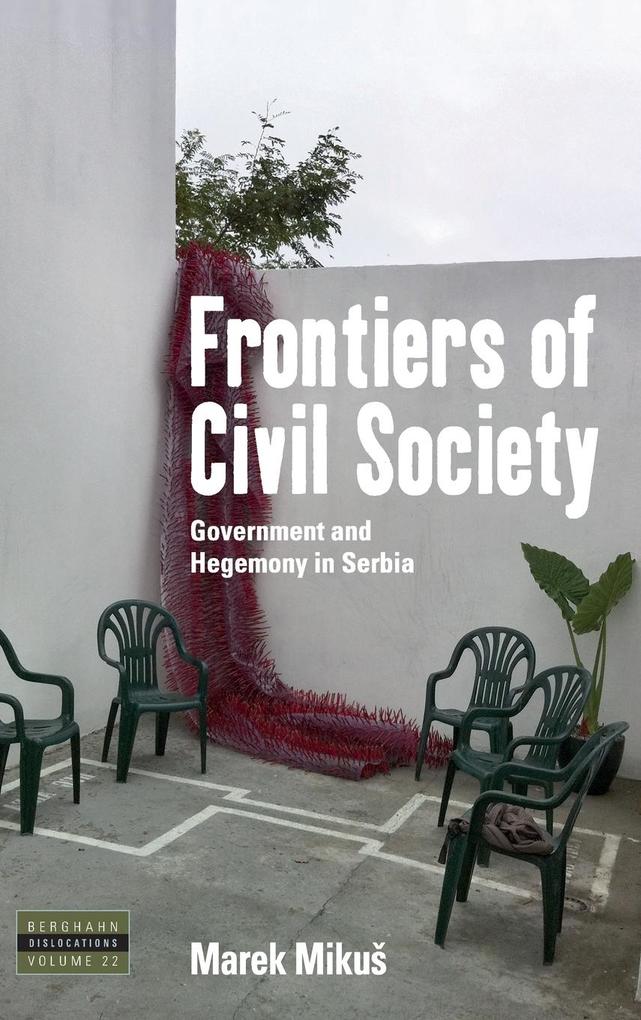
Zustellung: Mo, 02.06. - Do, 05.06.
Versand in 1-2 Wochen
VersandkostenfreiBestellen & in Filiale abholen:
In Serbia, as elsewhere in postsocialist Europe, the rise of "civil society" was expected to support a smooth transformation to Western models of liberal democracy and capitalism. More than twenty years after the Yugoslav wars, these expectations appear largely unmet. Frontiers of Civil Society asks why, exploring the roles of multiple civil society forces in a set of government "reforms" of society and individuals in the early 2010s, and examining them in the broader context of social struggles over neoliberal restructuring and transnational integration.
Inhaltsverzeichnis
List of Figures
Acknowledgements
Note on Transliteration
List of Acronyms
PART I: INTRODUCTIONS
Introduction: What and Whose Reform? Civil Society and Serbia's Endless Transition
Chapter 1. Historicizing 'Civil Society': Hegemonic Struggles and State Transformation after Tito
PART II: STRUGGLES OVER TRANSNATIONAL INTEGRATION
Chapter 2. 'Europeanization' and the Liberal Civil Society
Chapter 3. The Counterhegemonic Project of the Nationalist Civil Society
PART III: NEOLIBERALIZATION AT THE STATE-CIVIL SOCIETY FRONTIER
Chapter 4. The Rise of 'Partnerships' and the Politics of Transparency
Chapter 5. Welfare Restructuring and 'Traditional' Organizations of People with Disabilities
PART IV: LIBERAL CIVIL SOCIETY AND THE WIDER SOCIETY
Chapter 6. Philanthropy Development: Indigenizing 'Civil Society', Reshaping the Public Realm
Chapter 7. Public Advocacy: Engaging Actually Existing Local Politics
Conclusions
Epilogue: Civil Society and Hegemonic Re-alignments after Crisis
Bibliography
Index
Acknowledgements
Note on Transliteration
List of Acronyms
PART I: INTRODUCTIONS
Introduction: What and Whose Reform? Civil Society and Serbia's Endless Transition
Chapter 1. Historicizing 'Civil Society': Hegemonic Struggles and State Transformation after Tito
PART II: STRUGGLES OVER TRANSNATIONAL INTEGRATION
Chapter 2. 'Europeanization' and the Liberal Civil Society
Chapter 3. The Counterhegemonic Project of the Nationalist Civil Society
PART III: NEOLIBERALIZATION AT THE STATE-CIVIL SOCIETY FRONTIER
Chapter 4. The Rise of 'Partnerships' and the Politics of Transparency
Chapter 5. Welfare Restructuring and 'Traditional' Organizations of People with Disabilities
PART IV: LIBERAL CIVIL SOCIETY AND THE WIDER SOCIETY
Chapter 6. Philanthropy Development: Indigenizing 'Civil Society', Reshaping the Public Realm
Chapter 7. Public Advocacy: Engaging Actually Existing Local Politics
Conclusions
Epilogue: Civil Society and Hegemonic Re-alignments after Crisis
Bibliography
Index
Mehr aus dieser Reihe
Produktdetails
Erscheinungsdatum
13. Juni 2018
Sprache
englisch
Seitenanzahl
360
Reihe
Dislocations, 22
Autor/Autorin
Marek Miku
Verlag/Hersteller
Produktart
gebunden
Gewicht
672 g
Größe (L/B/H)
235/157/24 mm
ISBN
9781785338908
Entdecken Sie mehr
Bewertungen
0 Bewertungen
Es wurden noch keine Bewertungen abgegeben. Schreiben Sie die erste Bewertung zu "Frontiers of Civil Society" und helfen Sie damit anderen bei der Kaufentscheidung.


































